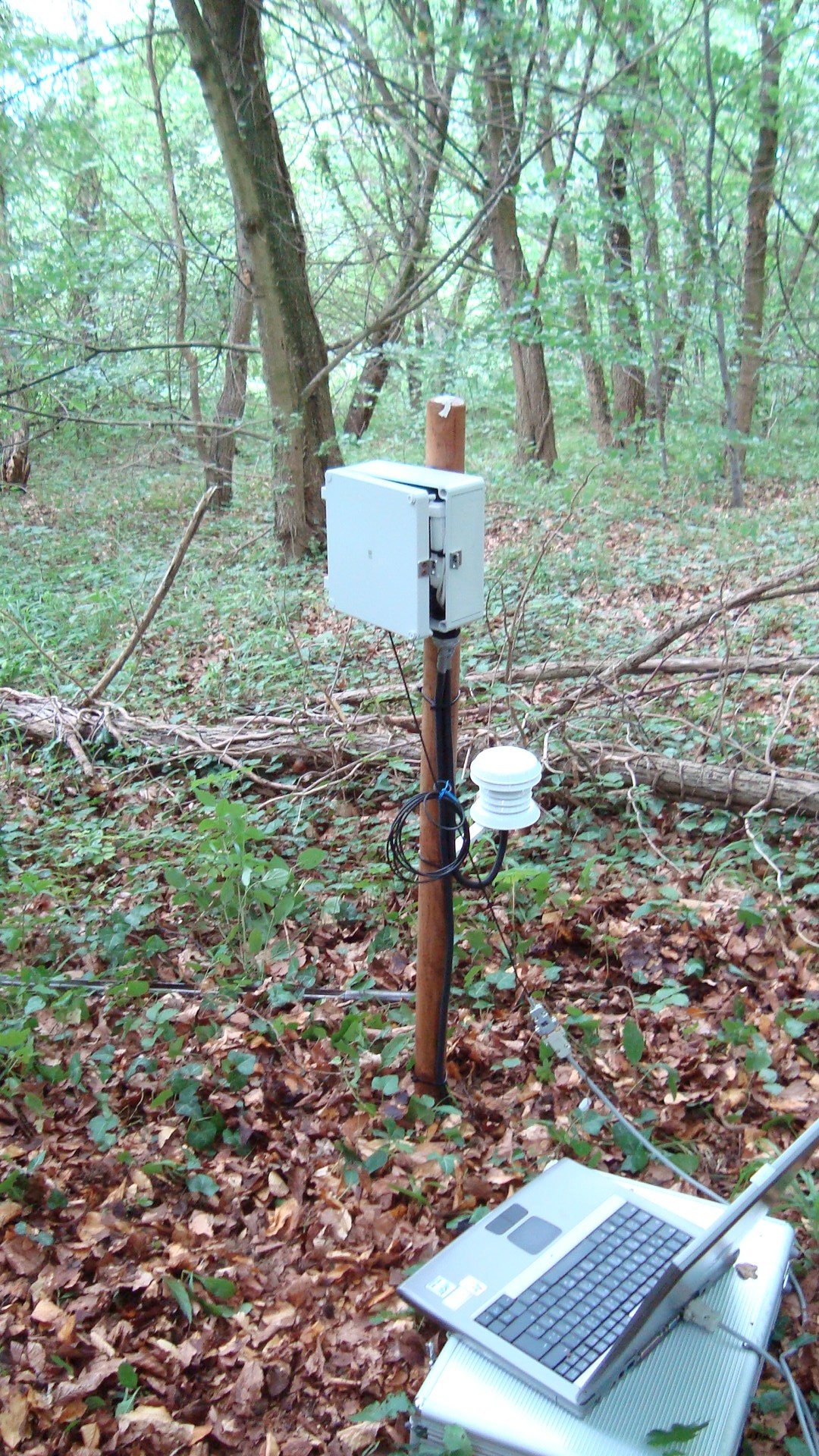Climate data
Previous research has shown that temperature, relative humidity and saturation deficit have a substantial impact on tick activity and longevity. For example at low relative humidities and high saturation deficits ticks face dessication.
Based on this prior knowledge we set up a total of 20 monitoring stations that record the most relevant meteorological and physical soil characteristics at different field sites in Baden-Württemberg. Every 10 minutes data on the average air temperature, air humidity , soil temperature and soil moisture are collected representing the conditions present in the tick’s microhabitat.
With our climate data, which represents the forest climate directly, more accurate statements about the habitat requirements of the tick are possible than has previously been the case.

